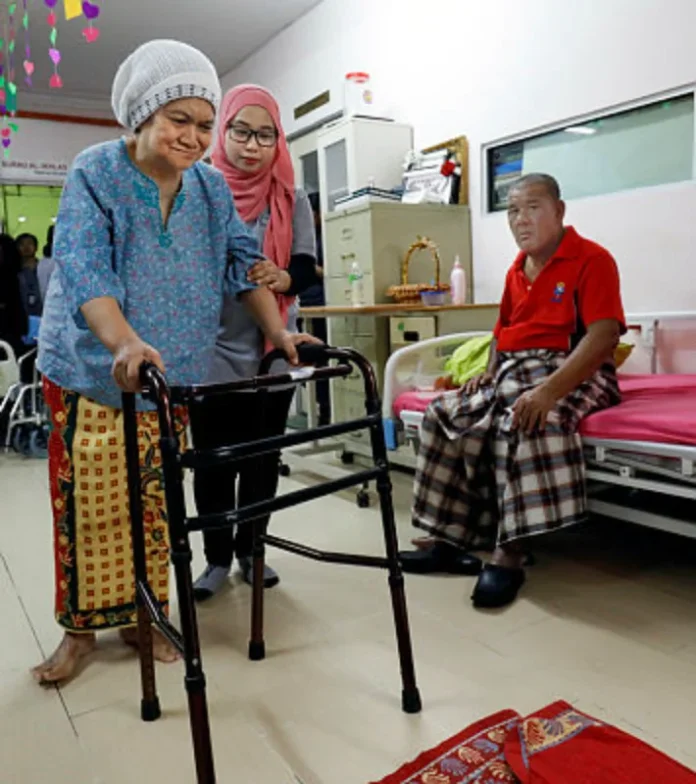Hospis Malaysia provides free home visits costing RM500 each, focusing on emotional support and dignity for patients and families
KUALA LUMPUR: Every home visit by Hospis Malaysia’s palliative care team costs around RM500 but for patients and their families, it is priceless.
Despite the cost, patients are never charged a single sen.
The organisation’s strategy and communications director Tham Su Ming said what they receive goes far beyond a medical check-up.
“We are offering a comprehensive, deeply human-centred approach to care.
The way Hospis Malaysia practises palliative care is team-based.
“We have doctors, nurses, rehab therapists, pharmacists – all playing different roles when they go in to see a patient,” Tham told theSun in an exclusive interview.
Each patient’s journey begins with an in-depth assessment by a senior nurse or doctor, who identifies physical symptoms such as pain or breathlessness, alongside emotional and psychological concerns.
“These issues don’t always surface during the first visit.
Building trust takes time.
Sometimes it’s only after the fourth or fifth visit that a patient will open up.”
Unlike the time-pressed consultations of busy hospitals, Hospis Malaysia’s model prioritises relationships over routine.
Tham recalled the story of an elderly patient from Penang who frequently travelled to Kuala Lumpur to visit his children.
Diagnosed with late-stage cancer, he appeared physically well but remained reluctant to discuss his future care plans.
“Our team kept asking him gently, ‘What’s important to you?’ It took almost six visits over three months before he opened up.”
The man finally revealed that he wished to live with his daughter in Kuala Lumpur once his condition worsened – but could not bring himself to ask.
“As a traditional Chinese father, he felt he would be intruding into what he saw as his son-in-law’s home.
There was also a cultural stigma around dying at home, which he feared might burden his family,” Tham explained.
Eventually, the patient asked a Hospis nurse to speak with his daughter on his behalf – a delicate conversation that unfolded slowly, with care and compassion.
“This story shows the emotional depth that palliative care often involves and why rushing it simply doesn’t work,” Tham said.
Hospis Malaysia estimates that each home visit that costs about RM500, covers staff salaries, training, travel, medical supplies and operational expenses.
Yet, no patient is ever billed.
“A private palliative care doctor’s visit can cost significantly more.
But we absorb the cost through donations and fundraising, so no one is turned away because they can’t afford it.”
The RM500, she added, reflects the collective effort behind each visit – from medical advice and symptom management to psychosocial support and caregiver education.
“You can have a very clinical model of palliative care that says: ‘Tell me now, what’s important, because I only have one hour’.
“We don’t operate like that.
We give patients time to tell us when they’re ready.”
While many assume palliative care is limited to pain relief, Hospis Malaysia’s approach extends beyond that.
“Pain is part of it, yes, but there’s so much more.
It’s about anxiety, dignity, decision-making, family dynamics and often just having someone to talk to.”
The aim, she stressed, is not about prolonging life at all costs, but to ensure that whatever time remains is meaningful, dignified and as comfortable as possible for both patients and their loved ones.
With the demand for palliative care projected to double by 2030, Hospis Malaysia is urging greater public and private support to sustain and expand its services.
“Palliative care is about people – the people are trained, compassionate, experienced caregivers.
They are what make this kind of care possible.”








